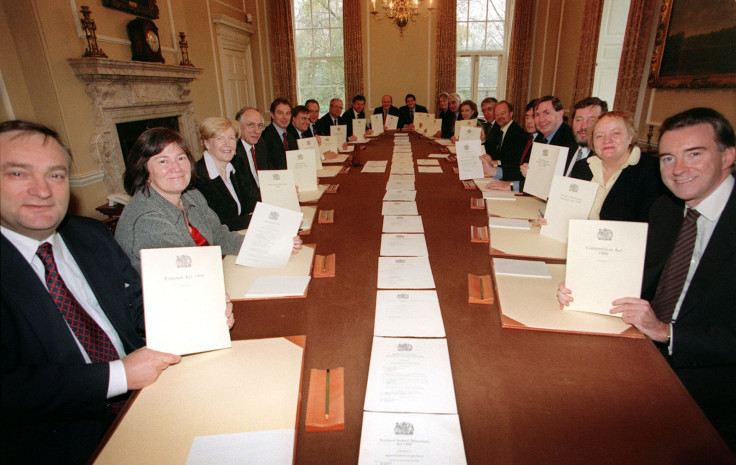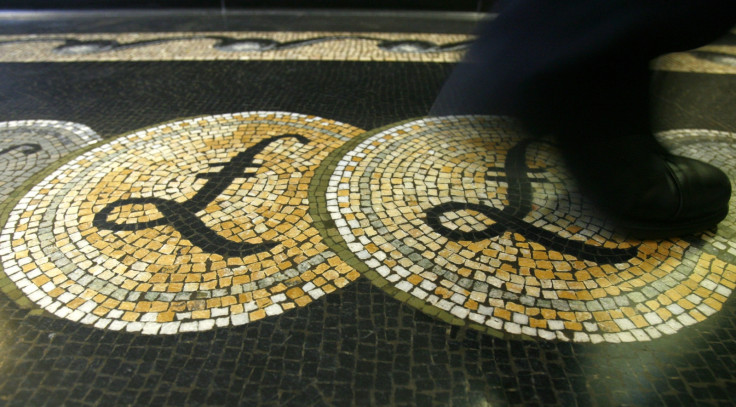UK Minimum Wage Increase: 15 Years of Controversy Continues

Millions of UK workers will see their pay packets rise today (1 October, 2014) as the national minimum wage (NMW) jumps to £6.50 an hour.
The move, on the recommendations of the Low Pay Commission, means the 2.9% rise (up from £6.31) will outstrip inflation – most recently at 1.5% in the year to August. The hike comes amid a political debate over the cost of living and real wages.
Katja Hall, the deputy-general of the Confederation of British Industry, said the increase is "only one part of the answer" to help "hard-pressed families".
"The rise in the NMW will help hard-pressed families, but can only be one part of the answer when it comes to raising living standards and ensuring everyone feels the benefits of growth," Hall added.
"Business and politicians must do more to help people progress in their careers and help them move into roles with increased pay.
"It is vital that any rise is based on sound economic evidence, so political parties should refrain from interfering in the future decision-making of the independent Low Pay Commission to avoid jeopardising the broad business support the NMW enjoys."
The minimum wage debate has also taken centre stage at the political party conferences ahead of the 2015 General Election in May.
Ed Miliband said a Labour government would increase the rate to £8 an hour by 2020.
Elsewhere, Nigel Farage promised that a Ukip government would axe income tax for people on the minimum wage by slashing Britain's foreign aid budget and stopping payments from the UK to the European Union.
The move would see the income tax-free allowance increased from £10,000 to £13,500.
The Chancellor George Osborne even mooted earlier this year that the rate should increase to £7 by 2015 on the back of the economy recovering.
The recent debate is just another chapter in the minimum wage's turbulent history.
A Very Short History

The wage first came into force in April 1999 after Tony Blair's New Labour party gained office.
John Major's government abolished wage councils (apart from the Agricultural Wages Board) in 1993, which set rates for industries with typically low pay, and the decline of trade union membership meant that collective bargaining – where employers and unions negotiate pay rates – became less common.
Opponents of the minimum wage rate said the policy would have negative effects on employment. But as the Low Pay Commission said, there is "little evidence of significant adverse effects of the minimum wage on employment".
Today, trade unions support the minimum wage – many often call for increases in the rate. But during the 1970s the trade unions opposed the policy, favouring collective bargaining instead.
The National Union of Public Sector Workers, which merged into Unison in 1993, was a lone voice in promoting the minimum wage in its Low Pay and How to End It pamphlet.
The controversy continues. The Federation of Small Businesses, which surveyed its members last year, found that more than two out of ten (23%) of small businesses said the 2013 rate rise for the NMW would have a negative impact on their company.
Of these, 75% said that it would reduce their firm's profitability, 35% would be reluctant to take on new staff, and 34% said they would have to increase prices.
But Paul Sellars, a policy officer at the Trades Union Congress, told IBTimes UK he does not think the new rate is enough.
"There seems to be more headroom to pay higher wages than you would expect. Perhaps it's no surprise that employers pay as much as they can afford," Sellars said.
"We're living in the real world here with real motivations, not an undergraduate economics textbook. We think it could've been more this time around. But it is the first above inflation increase for the last few years.
"We think there's a recovery now. If it's a wage-less recovery, that's going to hold it back. Businesses need customers and there's a consensus that [pay-packets] are going to have to rise."
Indeed, real wages have been a big concern among both businesses and workers.
The Office for National Statistics said regular pay for UK workers only grew at a rate of 0.7% in the three months to July, and the Bank of England said it would look closely at wages before considering interest rate rises.
In addition, the Ernst and Young Item Club warned that UK families could face a 'lost decade' of real wages as annual pay growth over the next three years will remain well below the 4.5% - 5% rates typical before the financial crisis of 2008.
So despite today's minimum wage hike, the pay debate looks like it is going to continue for a long time to come.
© Copyright IBTimes 2025. All rights reserved.






















